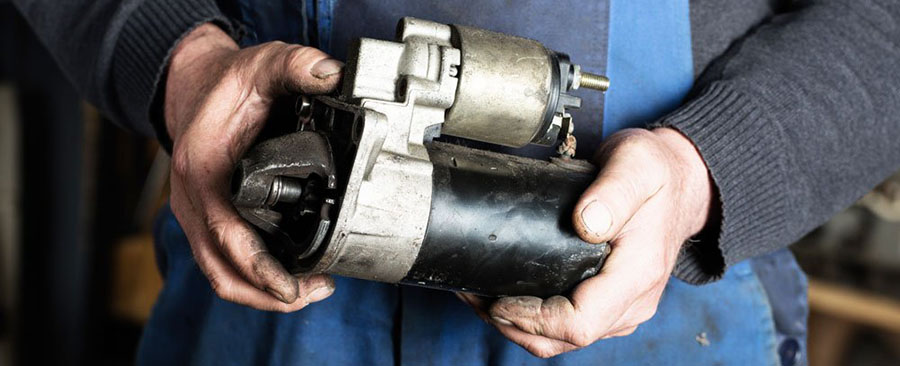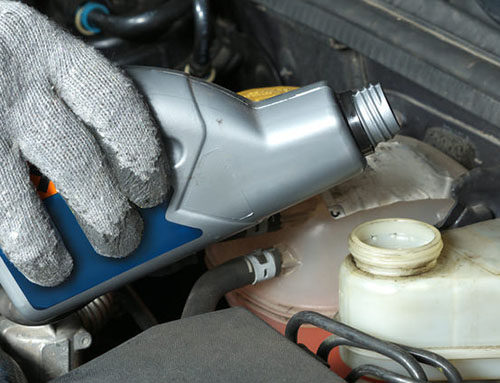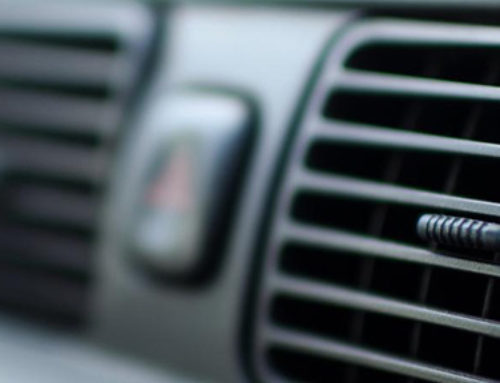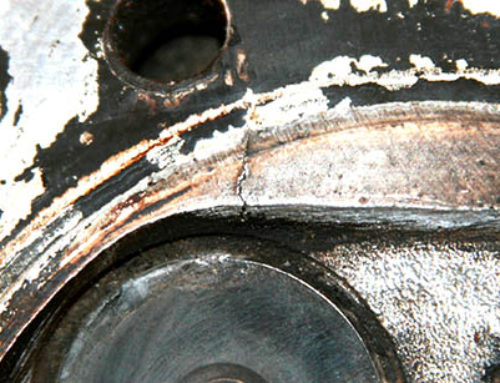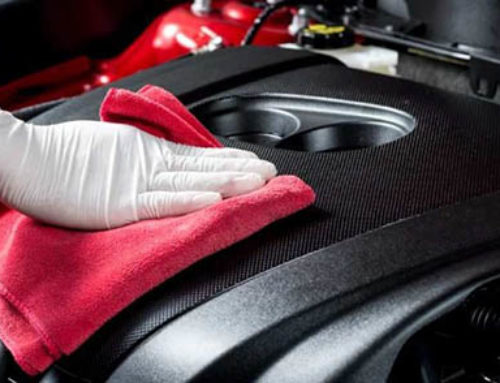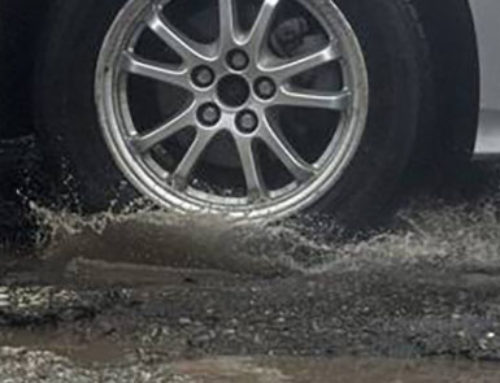Auto Starter – Certified Auto Repair Specialists here in Pasadena, we’ve talked about smog checks, timing belts, oxygen sensors, and much more. This week, it’s all about this small part of your car that can potentially cause you a huge inconvenience.
Imagine that you’re getting ready to head out to an important meeting – for example, a job interview, a work seminar, or a concert. You’re right on schedule and ready to get on the road and get there in time, but when you sit in your car, all of a sudden it won’t start (click, click).
Most people don’t even think about it until it’s too late, but your car’s electric starter motor is arguably the single most important part of your vehicle’s ignition system. Here, we’ll explain to you what a starter is, what it does, and how it works.
When cars were first invented, many of them used hand crank starters, which took some level of skill to operate and could jerk violently once the engine fired up, putting drivers at risk of serious injury. Thankfully, it didn’t take long for electric starter motors to become the standard for passenger vehicles, making starting our engines much easier and safer. Electric starters are essentially small motors which, when you start your engine, are driven with higher voltage and current than they are designed to handle. This allows them to put out enough power to move the parts of the engine enough to get things in motion and settle into its normal idle. With the excess power that starter motors conduct, they would burn out in just a few minutes of continuous operation, but the few seconds needed to start the engine is no problem, and they can start your engine over and over again.
However, it is impossible to completely prevent wear on your starter, and sooner or later, it will wear out and need to be replaced.
There are a few components to a starter motor. The one which most commonly fails is the starter solenoid. The starter solenoid acts like a relay to close the high-current contacts in the starter motor circuit. To save weight and cost, starters are designed so that they can only handle about 30 seconds of operation before overheating. This is why, if your engine is not cranking right away, it is advisable to pause for at least ten seconds after each ten seconds of cranking the ignition to preserve your starter life.
There are actually several common causes for your car not to start, from a failing fuel pump, computer, dead alternator or battery, corrosion or loose connections on the electrical system, no gas, or a number of other causes. However, aside from a dead battery, a bad starter may be the most common single cause for a car to fail to start.
How can you tell the difference between a bad starter or battery, or other components?
One single, quiet click, or no noise at all, is almost definitely a bad starter. The metal brushes inside of your starter are most likely worn out, causing bad electrical contact. It is possible that waiting for the starter to cool down can make it function again, and if you tap the starter with a hammer you can knock the brushes back into place. Your starter may even continue to work for several weeks, but it will inevitably stop working completely in the near future. Here at Certified Auto Repair Specialists, we recommend that you replace your starter as soon as you encounter problems rather than risk your car not starting in an emergency.
Sometimes, the symptoms of a bad starter actually sound like those of a dead battery. Your car’s headlights or dashboard may dim when you crank the ignition, and your engine may turn over very slowly. If your car makes a steady clicking noise, but the engine does not turn over at all, then you most likely have a weak battery. The clicking noise is the starter solenoid engaging, but not getting enough power to turn over the engine.
When your starter does go out, Certified Auto Repair Specialists of Pasadena is here for you. We can diagnose your starting problems and fix or replace the failing component no matter what it is. If your car isn’t starting up like it should, call our certified team of technicians today!


